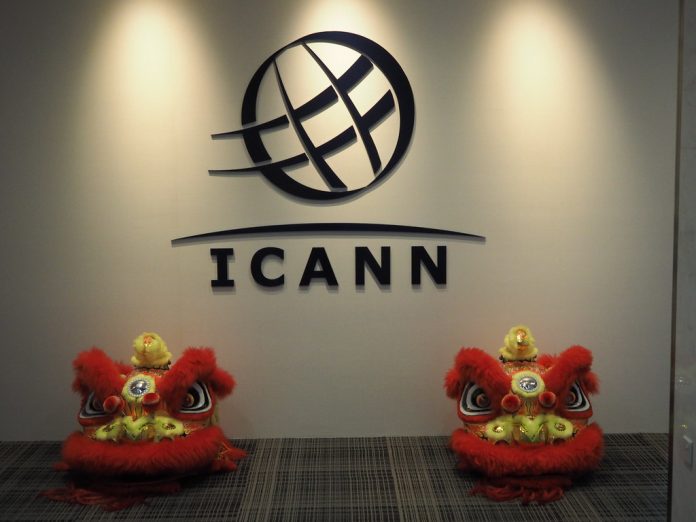This article is written by Aayushi Gupta of Rajiv Gandhi National University of Law, Punjab. This article focuses on ICANN, its objectives, its mode of operation, and the main issues and controversies relating to it.
Table of Contents
Introduction
ICANN or the Internet Corporation for Assigned Names and Numbers is a global multistakeholder organization which was created by the US Government in 1998 with its major focus on managing Internet Protocol or IP numbers and Domain Name System or DNS root. Although it started with the US Government and its Department of Commerce, it is now a community-driven organization independent of any one government.
Internet Corporation for Assigned Names and Numbers
It is an American multi-stakeholder group and non-profit organization that helps maintain the security of the internet and makes it usable for all. It coordinates the maintenance and procedure of several databases related to namespaces and numerical spaces all over the internet, ensuring its stability and secured operation.
These namespaces and numerical spaces are a set of symbols used to identify and refer to the objects of various kinds ensuring that the objects have unique symbols so that they can be easily identified. ICANN coordinates the internet’s Domain Name System (DNS), Internet Protocol System, and autonomous system numbers, involving continued management of these ever-changing systems and the underlying protocols. This DNS translates the domain name which we type, into the corresponding IP address and connects to the desired website. It also helps the email to function properly and reach the person to whom it’s intended for.
In pursuant to the Internet Assigned Numbers Authority (IANA) contract, it performs the actual technical maintenance work of the Central Internet Address pools and DNS root zones registries. Anytime we register a domain on the internet, we go to a domain registrar which pays a certain to ICANN to register our domain as part of the domain registration process. The contract regarding the IANA stewardship or supervising functions between the ICANN and the National Telecommunications and Information Administration (NTIA) of the United States Department of Commerce ended on October 1, 2016 formally transferring the functions to the former organization.
Much of its work has been regarding the Internet’s DNS system, including the development of a policy for its internationalization, the introduction of new generic Top-Level Domains, and the operation of root- name servers. It also manages the IP address spaces and the registries for the IP identifiers.
While ICANN does not control what goes on the internet which means that it can’t stop the spam from occurring or the regulation to the internet Access, but it does help keep the internet safe by formulating and enforcing policy on Internet’s Unique identifiers. By helping to coordinate these unique identifiers all over the world, it provides us with a global internet. By doing so, it also helps to promote competition on the web and plays a vital role in the expansion and evolution of the internet.
It was announced publicly on September 17, 1998 but it came into operation on September 30, 1998, incorporated in the US State of California. It was originally headquartered in Marina del Rey in the same building as the Information Sciences Institute, but now its offices are in the Playa Vista neighborhood of Los Angeles.
ICANN collaborates with a variety of stakeholders inclusive of individuals, companies, and governments to ensure proper functioning and success of the internet. It holds meetings three times a year, changing the international location for every meeting.

History of the ICANN
Before the establishment of the ICANN, the Internet Assigned Numbers Authority (IANA) function of administering registries of IP identifiers was performed by Jon Postel, a Computer Science researcher who had been involved in the creation of the Advanced Research Projects Agency Network (ARPANET).
In 1997, he testified before Congress that this had come as a subsidiary task to this research work. But with the growing and the global expansion of the internet, the US Department of Commerce initiated a process for establishing a new organization that would perform the IANA functions.
On January 30, 1998, the National Communications and Information Administration (NTIA), issued for comment, “A Proposal to Improve the Technical Management of Internet Names and Addresses.” The proposed rulemaking or Green Paper was published providing an opportunity for public comment.
The Green Paper proposed certain actions that were designed to privatize Internet Management and simultaneously, allowing the development of competition and facilitating global participation in Internet Management.
It also proposed for discussion a variety of issues relating to the DNS management including the creation of a private not-for-profit organization managed by a globally and functionally representative Board of Directors. ICANN was formed in response to this policy and managed the IANA under contract to the US Department of Commerce and under an agreement to the International Engineering Task Force (IETF).
ICANN was incorporated in California on September 30, 1998 with entrepreneur and philanthropist, Esther Dyson as its founding chairperson. It is a non-profit public benefit corporation organized under the California Nonprofit Public Benefit Corporation Law for charitable and public purposes.
It was established in California due to the presence of John Postel, who was a founder of ICANN and was set to be its first Chief Technology Officer, prior to his sudden death. The office was also in the same Marina del Rey building which was also the home to an office of the Information Sciences Institute of the University of Southern California. However, now its headquarters are located in the Playa Vista neighborhood of Los Angeles.
Per its original bylaws, the principal responsibility for policy formation in ICANN was to be delegated to its three supporting organizations- Address Supporting Organization, Domain Name Supporting Organization and Protocol Supporting Organization, each of which was given the task to develop and recommend substantive policies and procedures for the management of the identifiers. They were also required to be monetarily independent of ICANN.
The Regional Internet registries and IETF came to work as Address Supporting Organization and Protocol Supporting Organization respectively. ICANN issued notice to suggest the structure and composition of the third Supporting Organization, but with the DNSO’s proposal, it added the primary responsibility of the DNS policy formulation in its existing duties.
On March 10, 2016, ICANN and the Department of Commerce signed a historic agreement to finally remove ICANN and IANA from the control and supervision of the Department of Commerce. Thus, it continues to be an international, community-driven organization independent of any government.
Objective
The mission of the ICANN is to coordinate, at the overall or the global level, the internet’s system of unique identifiers, and in particular to ensure the stable and secure operation of the internet’s unique identifier systems. In particular, it coordinates the allocation and assignment of the three sets of unique identifier systems, namely, DNS, IP, and Autonomous system numbers, and Protocol Port and Parameter Numbers. It also coordinates the operation and evolution of the DNS root name server system and also coordinates policy development for these technical functions.
The main principles around which ICANN revolves are:
- Preserving the operational stability of the internet;
- Promoting competition;
- Achieving a broad representation of the Global internet Community;
- And developing policies related to its mission through bottom-up, consensus-based processes.
The main goals or the objectives of ICANN are as follows:
- Acting as a steward for the public interest: It tends to develop public interest framework for promoting the global public interest in accordance with the internet’s unique identifier system and in furtherance of its mission;
- Promotion of ethics, transparency, and accountability across the ICANN community;
- Empowering current and new stakeholders to fully participate in ICANN activities: It empowers current and new stakeholders to fully participate and further ICANN’s activities in the broader ecosystem. This work is achieved through specific and measurable development and public responsibility tools, programs, and collaborations along with focus areas that strengthen the multistakeholder model.
In performing its mission and furthering its objectives, ICANN is guided by some of these values like:
- Enhancing the operational stability, reliability, security and global interoperability of the internet;
- Respecting the creativity, flow and innovation of Information across the internet;
- Seeking and supporting broader participation reflecting the cultural, geographical diversity in its truest sense;
- Promoting and sustaining a competitive environment;
- Employing proper and transparent policy development mechanisms;
- Making decisions neutrally and objectively and with integrity and fairness;
- Remaining accountable to the internet community through mechanisms that enhance ICANN’s effectiveness;
- Duly taking into account the government’s and public’s recommendations.
ICANN’s strategic principles have always remained committed to its mission. These principles are that the internet’s unique identifier system must be maintained as stable and secure with competition within them giving internet users greater choice. The policies should be developed through a bottom-up, consensus-based process that has global representation. In short, its bottom-up coordination of global stakeholder interests is the mode through which it accomplishes stability and competition.
Working
Organization and Structure
It is central to its mission that the organization in itself is structured in a way that welcomes a variety of voices and seeks to represent even the extremely diverse constituencies in the internet’s development. But the organization faces some issues that it has larger US influence in it or it should be subordinated to the UN’s jurisdiction and similar solutions.
ICANN is governed by a Board of Directors made up of 15 voting members, inclusive of the President and CEO. The Board is further aided by 5 non-voting liaisons. The Board currently has Goran Marby as its President and CEO and Cherine Chalaby as its Chair and Chris Disspain as its Vice Chair respectively.
It is also aided by several Supporting Organizations like:
- Generic Names Supporting Organization (GNSO), which brings together small stakeholder groups and larger constituencies to develop policies and form consensus and make recommendations.
- Country Code Names Supporting Organization (CCNSO), is an advisory body that oversees the nation’s own Country Code Top Level Domain.
- Address Supporting Organization, which develops IP recommendations, address policy, and advises ICANN.
- Governmental Advisory Committee, which advises ICANN on public policy aspects of its responsibilities with regard to internet DNS.
- At-Large Advisory Committee, functions as an advocate for the interests of individual internet users.
ICANN holds meetings three times a year and one of these meetings serves as the organization’s general meeting where new board directors take their appointed seats. The Board Governance Committee is in charge of reviewing all reconsideration requests. The board actions are reviewed by an Independent Review Panel, which has the power to call attention to the discrepancies between the bylaws and actions of the board. It also asks the board to readdress certain issues.
There are both external and internal accountabilities for the actions of ICANN. ICANN is an organization incorporated under the law of the state of California. Therefore, it must abide by US law and can be taken to court by the US Judicial system. It also holds itself accountable through its bylaws, global Board presence, an independent nominating advisory committee, senior staff who are elected by the Board, dispute resolution procedures, an independent review panel, and an ombudsman.
Process
There is a system that makes the internet accessible to humans. This system is called the Domain Name System or DNS, which makes it easier for us to remember the IP address. The IP address is a complex series of numbers each correlated to a different device making it difficult for us to remember. This is where DNS steps in and converts these numbers to a series of letters instead. The DNS helps us remember the web addresses easily.
ICANN’s association with DNS and IP address
Domains are sold by registrars. There is no single registrar that rules over all the domains but rather a vast network. They can charge whatever they want for that domain but it has to pay a set-appropriate fee to the registry in whose name the domain is being registered. ICANN has contracts with each of these registries and runs an accreditation system for registrars. This system of checks and balances provides a stable domain name environment, which gives an open internet.
Just as there can be no two same domain names, similarly, there can be no two similar IP addresses. Here ICANN plays an administrative role in this field. It helps coordinate how IP addresses are handed out so no repetition occurs. It also acts as a central repository of IP addresses. In this, ranges are supplied to the regional registries who then supply it to network providers.
ICANN’s association with root servers
The operators of the root servers are able to remain largely autonomous but they still need to work with each other and make sure the system remains up to date with ICANN and the changing internet.
Main issues and controversies
Since its inception, ICANN has been a subject of criticism and controversy. In 2000, Professor Michael Froomkin of the University of Miami School of Law said that the relationship between ICANN and US DOC is illegal and in violation of either the Constitution or federal statutes. During 2011, the Federal Trade Commission stated that ICANN had long failed to provide safeguards against the online swindlers to the consumers.
Also during 2011, 79 companies including the Coca-Cola Company, Hewlett-Packard, and Samsung signed a petition against its new TLD programs or commercial land grab. Primarily, as a response to this criticism, ICANN initiated an effort to protect trademarks in domain name registrations, substantially resulting in the establishment of the Trademark Clearinghouse.
One controversial proposal, resulting from a September 2011 summit between India, Brazil and South Africa, would seek to move internet Governance into a UN committee on internet related Policy (UN-CIRP). It proposed the creation of a new political organization working as a unit of the UN to provide policy recommendations for the consideration of technical organizations like ICANN and ITU. Due to its continuous criticism, India backed out of this proposal.
On October 7, 2013 a Montevideo statement on the future of Internet Cooperation was released by the managers of a number of organizations who were involved in coordinating the internet’s global infrastructure. The statement expressed strong concerns over the undermining of trust and confidence of the internet users globally due to pervasive monitoring and surveillance and a dire need to globalize ICANN and IANA function, towards an environment where each stakeholder can participate on an equal footing. This was released in the desire to reduce the UN association with the internet.
The NetMundial Initiative, a plan intended for the internet’s international governance, was first proposed at the Global Multistakeholder Meeting on the Future of Internet Governance Conference held in Brazil and later developed into NetMundial Initiative by ICANN’s former CEO Fadi Chehade. The meeting produced a non-binding statement in favor of consensus based decision making. It neither openly condemned mass surveillance nor did it support neutrality. The final resolution stated that ICANN should be controlled internationally. Some countries like India and China were unhappy with the final resolution and wanted multilateral management of ICANN rather than multi stakeholder management.
ICANN accepted the .sucks domain which proved to be objectionable and derogatory. And in a long running dispute, ICANN has refused a Turkish company to purchase the .islam and .halal Generic Top-Level Domains (gTLDs). Its domains are still on hold. In May 2019, ICANN granted exclusive administration rights to amazon.com for using the .amazon gTLD.
ICANN adopted a conflict of interest policy in 2012. It requires that all the Board Members, as well as those in other positions, may report any and all potential conflict of interest of the Board Governance Committee. They must then abstain themselves from any ICANN activity related to conflict of interest and also may not join hands with any new gTLD registry until 12 months after the registry’s application has been voted up.
- Manwin Antitrust Lawsuit
In the Manwin Antitrust Lawsuit, Manwin, one of the most infamous adult content creators on the internet filed an antitrust lawsuit against both the ICM Registry and ICANN. It also filed an Independent Request Panel with ICANN.
Manwin was of the opinion that the ICANN did not adequately address issues including competition, consumer protection, malicious abuse, etc. But ICANN and ICM both filed motions to dismiss the case.
ICANN argued that since it is a not-for-profit organization and it’s not involved in trade and commerce so US antitrust laws would not be applicable and they also held that Manwin’s complaint was about the rising competition and he acted arbitrarily after he approached the company with a mutually beneficial agreement in exchange for profit, which the company rejected.
- .JOBS Charter Compliance Coalition Criticism
One day before the implementation of the new gTLD program, the coalition sent a letter to ICANN stating that it failed to evaluate and look into all comments and information submitted by entities against the request made by the .jobs operator to change its charter.
The chairperson of the coalition stated that ICANN was inefficient in dealing with the arbitration proceedings which dealt with the immediate resolution of Employ Media’s Charter violation which resulted in the company arbitrarily using the. Jobs top level domain and gains substantial benefits from it. The chairman also suggested that ICANN should disqualify Employ Media and its partners as it is a case of a history of abuse.
Conclusion
Despite being criticized and being subject to objections, it still has been applauded globally for its efforts at maintaining and strengthening the internet’s infrastructure. It is also appreciated for allowing even Arabic populations to surf the internet without relying on foreign characters and domains. It has also received an award by the Board of Trustees of Sheikh Saleem in May 2012 for its outstanding contributions.
References
- http://osaka.law.miami.edu/~froomkin/articles/icann-body.htm
- https://www.internetgovernance.org/2011/09/17/india-brazil-and-south-africa-call-for-creation-of-new-global-body-to-control-the-internet/
LawSikho has created a telegram group for exchanging legal knowledge, referrals and various opportunities. You can click on this link and join:
 Serato DJ Crack 2025Serato DJ PRO Crack
Serato DJ Crack 2025Serato DJ PRO Crack










 Allow notifications
Allow notifications


